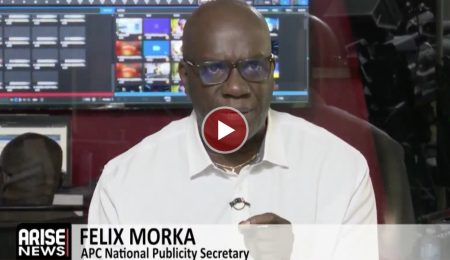The House of Representatives Committee on Petroleum Resources (Downstream) has resolved to launch a comprehensive investigation into the state of Nigeria’s refinery rehabilitation projects.
Checks revealed that the Port Harcourt refinery, which recently commenced production after a turnaround maintenance that gulped millions of dollars, has ceased production.
The Economic and Financial Crimes Commission (EFCC) is already probing the disbursement of $1.5 billion allocated to the Port Harcourt refinery, $740 million released for the Kaduna refinery, and $657 million approved for the Warri refinery.
However, the committee noted that its decision to probe NNPC was made at a special session following the review of numerous petitions and complaints from the general public.
The Chairman of the committee, Hon. Imo Ugochinyere, at a media briefing on Wednesday, said these petitions included serious allegations of fraud, mismanagement, and misappropriation of public funds committed to the rehabilitation of refineries.
He stressed that the committee was particularly concerned about the apparent lack of accountability from those assigned to monitor the progress—ranging from refinery managers to NNPC officials—who provided regular updates and site visits.
Ugochinyere said the goal was to uncover why, despite heavy financial investments, the refinery remained non-functional, shut down, and surrounded by confusion and controversy.
He said: “The House Committee, following a special session and after reviewing numerous petitions and complaints from the general public, has resolved to launch a comprehensive investigation into the state of Nigeria’s refinery rehabilitation projects.
“The committee noted that these petitions include serious allegations of fraud, mismanagement, and possible misappropriation of public funds committed to the rehabilitation of refineries.
“While acknowledging that relevant security and investigative agencies may already be handling aspects of the matter, its legislative responsibility to conduct a fact-finding exercise on behalf of the people.
“The goal is to uncover why, despite heavy financial investments, the refinery remains non-functional, shut down, and surrounded by confusion and controversy.
“The refineries are public assets belonging to the federation—jointly owned by both federal and state governments—and that it is the duty of the National Assembly to provide the Nigerian people with clear answers. Citizens are rightly asking: What happened? Was the public deceived? Was the project sabotaged?”
Ugochinyere emphasised that at the core of the committee’s inquiry was whether the refinery rehabilitation was executed according to the terms and technical specifications outlined in the contracts.
According to him, “If so, why is the facility not operational? If not, did the contractors fail? Were there consequences for non-performance? Was there evidence of misappropriation, shady dealings, or a breakdown in oversight?”
In addition, the Committee is investigating challenges local and modular refineries face in accessing crude oil.
A key concern was why these domestic refiners are compelled to travel to Switzerland to negotiate for crude that is sourced locally.
Ugochinyere further noted that the committee had received multiple petitions related to the petroleum sector, adding that a major priority was to develop lasting solutions for supplying crude to modular and smaller refineries.
The committee also resolved to revisit the acquisition of OVH and related grievances raised by staff at NNPC Retail.
Ugochinyere further stated that the House had earlier rejected a prior report on the OVH deal and has now mandated the committee to re-investigate the matter.
Furthermore, the House has resolved to propose amendments to the Petroleum Industry Act (PIA) to resolve new issues not addressed by the current legislation.
Ugochinyere said the committee would compile all proposed amendments for House approval to reinforce the operations of NMDPRA and the downstream sector.
He revealed that the committee has dismissed a petition seeking the dissolution of the Nigerian Midstream and Downstream Petroleum Regulatory Authority (NMDPRA), explaining that under the PIA, only the President holds the authority to make such appointments, and reverting to past practices of arbitrary dismissals is not an option.
Ugochinyere emphasised that the committee was not shielding anyone and that anyone found guilty of corruption should face the full force of the law.
According to the committee, the lawmakers have also resolved to probe ongoing fuel importation, conflicting claims regarding the support of local refineries, and explore legislative interventions to protect domestic producers.
Ugochinyere announced that the House would launch the first annual Downstream Petroleum Week starting October 2, 2025.
He gave assurances that the House would not permit the establishment of monopolies within Nigeria’s oil sector.
All subcommittees would be tasked with accelerating ongoing investigations, resolving important issues, and responding to emerging developments to ensure the downstream sector remains viable and resilient.
Adedayo Akinwale and Juliet Okoje
Follow us on:


